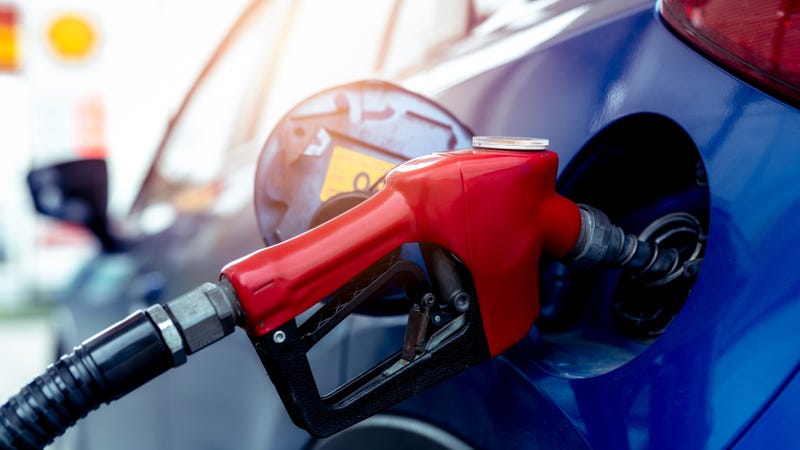
Gas prices are stubbornly high, with some pumps in the area nearing $4 per gallon.
What's causing us to pay so much at the pump? According to Villanova University chemical engineering professor Dr. Scott Jackson, two main factors are motoring our driving costs upward.

"One is essentially structure, and that is the supply and demand curve," said Dr. Jackson.
"When the pandemic started, the bottom dropped out of the market. So nobody was buying gasoline. Nobody's driving. All of a sudden, everybody said, 'Oh, my gosh, there's too much oil in the market.'"
Dr. Jackson said that crude oil prices then went negative, essentially meaning that producers weren't profiting from the suddenly low prices. Producers like OPEC pulled back on production to bring barrel prices back to $45.
"All of a sudden, the uptick in the world economy was a lot faster than anybody thought it was going to happen," said Dr. Jackson.
"Demand went way up, a lot faster than anybody thought was going to occur. And here's everybody, all the producers saying, 'Oh, we got to ramp up production.'"
But as Dr. Jackson said, producers couldn't create oil quickly enough to meet the deand, so the price went back up.
The second factor, Dr. Jackson said, is emotional.
"The situation in Europe is just messing with everybody's mind, and rightfully so," he described.
"It's really destabilizing the whole world economic situation. Natural gas is piped right straight through Ukraine from Russia to Western Europe, and there's some oil transport but it's usually really natural gas. The whole situation is really making people nervous."
Dr. Jackson believes that is driving the prices for oil futures up, and it could remain for a while.
"If there is an invasion of Ukraine, holy c***, you can expect the price of oil to stay high," he said.
However, he believes an American ramp-up of production could curtail those high prices.
"The Americans are back in the game. We are, again, the largest exporter of petroleum products in the world," he said.
"We are net exporters of petroleum products, whereas before back about five, six years, we were net importers."
However, he believes it may take a while to reach such a ceiling of high prices.
"I've been telling my students by the end of semester, we may see oil at $100 a barrel, and the gas prices just keep on going up in lockstep," he said.
Many believe it's up to federal government to find a way to drop oil prices when they rise as high as they do, but Dr. Jackson says unequivocally that presidents can't pull a lever and change the price.
"Let me make it very clear. No president has control of oil prices," said Dr. Jackson.
"(It) has nothing to do with what Trump, or Biden, or Bush or anybody else has done. It's all because of OPEC and the dynamics with the US oil production, and particularly, shale oil."
How bad could it get here for gas prices? The answer comes reflected in the price of a barrel of oil.
"Worst case scenario, it will go over $4 a gallon (in Philadelphia and the Delaware Valley) once prices of oil go to $100," Dr. Jackson said.
"Once oil comes back down, it will retreat," he added.
"It may take until the third quarter of this year before it gets down to you know, $50 or $60 a barrel, It will be a little back off of $4. It may back off of $3 (or) get below $3. No guarantee about that."
Dr. Jackson also spoke about the long-term effects the movement toward electric vehicles could have not only on overall energy prices, but the environment and our consumer decisions.
LISTEN on the Audacy App
Sign up and follow Audacy
Facebook | Twitter | Instagram

